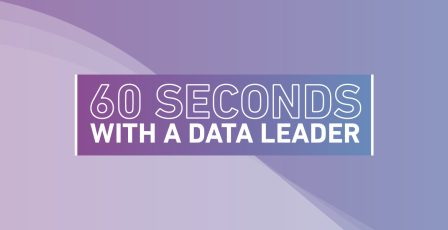Bring donors closer to the cause
For charities, fundraising is a constant focus as it brings in the critical donations and contributions that are required to keep their operation running
The key to successful fundraising lies in building relationships with donors, where they feel included and valued, and so more likely to continue giving and responding to the charity. A one-off donation will stay as just that, rather than developing into a long-term relationship.
Charity giving has been hugely affected in recent years. According to Charities Aid Foundation’s UK Giving Report 2023[1], donation levels and engagement with charities have still not recovered to pre-pandemic levels. Furthermore, the cost-of-living crisis is having an additional effect on charitable giving. Over 2022, more than 69% of people anticipated they would need to make cuts to their spending to help manage bills, including 17% who said they would be likely to cut their charitable donations. In total, a quarter (24%) of people reported they had made, or were considering making, changes to their charitable behaviours. This included reducing or cancelling a regular charity donation (5%) and choosing not to make a one-off donation (10%).
The power and importance of connecting with your donors
Retaining donors is more effective than continually seeking new ones. In fact, it costs 5 to 7 times more to find a new donor than to retain an existing one. To encourage an on-going relationship with your donors, you need to deliver experiences and interactions that they find compelling and show them they are appreciated. Achieving this requires a relationship-focused approach to donor nurturing from the very beginning. The value of building a connection with your donors cannot be underestimated.
Get to know your donors
A critical aspect of fundraising is knowing who your donors are, what they care about, and how they want to be engaged. You need to thoroughly research your donor segments, understand their motivations, preferences and behaviours, and tailor your communication and outreach accordingly. Keeping donors engaged and motivated to stay involved with your charity is critical and analysing the data you hold on your donors is central to achieving this.
Build donor trust
Trust and confidence are essential to every charity. According to Charity Commission research, trust is built when the public see funds being used for charitable activity and making the difference that they were promised to make, in a way that is consistent with the charity’s proclaimed values.
Charities need to make building trust and reassuring their supporters one of their top priorities. A key enabler is ensuring there is a variety of accessible information available that explains your mission and values clearly, in a way that makes it easy to understand exactly what it is that you do and the difference you are making. All financial information related to the charity should be up to date and easily accessible on your website. Your website should also include up to date information on your charity’s management and governance. You should provide information about your board of directors, senior leadership, and any committees or volunteers that are integral to the organisation. Add plenty of case studies and videos to give evidence of how your charity is making a difference and provide the option to view or download your latest impact report.
In terms of interacting with your donor base, being able to send personalised communications is another excellent way to build trust and loyalty. A donor wants to know that their contribution is important and valued, and that it has already or soon will make a difference. It’s the charity’s job to convey that message. Being able to do so via tailored communication will go a long way to nurturing your relationship.
Consider moving away from away from third party giving platforms
According to research for Charity Checkout by Maru/Usurv, if given the choice, 89% of UK donors would prefer to donate via a charity’s own website rather than via a third-party platform. And almost half of donors said they are put off donating if they must join a third-party fundraising platform to do so as they want a direct relationship with the charities they donate to, not the platforms they donate through.
Donating via these platforms incurs fees which some donors wish to avoid. While it has been several years since JustGiving and GoFundMe dropped their platform charges, where they took a share of fundraising totals, in their place they have added ‘voluntary tips’ at the check-out that are set between 10 per cent and 15 per cent and go directly to the website. Customers can opt not to accept these charges, but some have complained that they are not made obvious enough and they unwittingly donate a tip. What’s more, these platforms were originally developed as peer-to-peer sites, allowing friends and family to easily sponsor each other for participating in an event for example. There’s limited control over your brand and the data that’s collected from your supporters. Taking donations directly maintains brand autonomy, reduces payment fees, and gives you full control over the data you collect from supporters.
Optimise your website for fundraising
A charity’s website is one of the most powerful tools they have and can ultimately determine whether someone decides to support them or not, so it’s important to make sure that it’s working hard and doing the job you need it to do.
It should have a simple navigation and feature concise and digestible content, with clear calls-to-action. Case studies should be used to evidence the work your charity does. You must give supporters the option to view or download your latest impact report along with all relevant financial information concerning your operation. There should be an opportunity to sign up for newsletters / email marketing to provide regular updates and nurture supporters and donors.
The donation process on your website must be clear, quick and easy with a single form containing as few fields as possible, potentially with a ‘suggested amount’ to donate, to make the process frictionless and intuitive. When donations are made, it’s imperative that the donor is thanked and then updated regularly with how their donation has helped. This is also an opportunity to allow them the chance to set up regular donations – monthly, quarterly or twice yearly are popular. An inspirational message or video outlining your aims, history and success alongside testimonials from both donors and those who benefit from your charity, can further boost fundraising success.
How do charities use digital technology?
Charities use digital technology to enhance operations, engage supporters, and drive impact. They leverage online platforms, crowdfunding, and peer-to-peer fundraising for efficient fundraising. Donor management is improved through customer relationship management systems and databases. Administrative tasks are streamlined with project management tools, cloud-based storage, and automated workflows.
Don’t forget about NextGen donors!
‘NextGen’ donors are a critical cohort within your fundraising base. Millennials and Gen Z (the Millennial generation were born between 1981 and 1996, and Gen Z were born between 1997 and 2012) are currently giving to the widest range of charities according to the Donor Pulse Report for Spring 2022. A recent report by GiveStar concluded that these groups are among the most charitable: donating, volunteering and fundraising more than their parents’ generation. It is therefore important that Charities focus their efforts on this potentially lucrative group of future donors.
Millennials and Gen Z have grown up with digital technology, they’re social media fluent and they understand the power of the internet. It is vital to gain insight into the type of channels they are consuming, for instance:
- 62% of Gen Z checks Instagram daily and 60% visit YouTube daily[2]
- Gen Z make up 60% of TikTok’s user base[3]
- 90% of Gen Z have used Snapchat
- The use of Facebook declines year-by-year[4] among Gen Z
Young people are active on social media, but they are not always on the more traditional type of social channels adopted by the charity sectors – Facebook, Twitter, and LinkedIn. Charities must create savvy digital media strategies to educate and engage younger donors.
Acquire accurate donor data
To ensure only accurate donor data enters your database consider Experian’s address validation tools. Our range of data quality tools can check the validity and accuracy of your data. It ensures the contact information you hold in your system – postal addresses, email addresses and phone numbers – are correct, consistent, and up to date, resolving inaccurate content from your contacts and saving you time and money. Our solutions can be integrated across websites; in newsletter sign-ups, purchase or donor registration / donation forms, or any other kind of data gathering or lead-generating input. It can also link directly into your ecommerce and CRM systems so that any data entered internally is subject to the same verification.
Applying a bulk cleanse will validate and clean the data you already hold to ensure any incorrect, incomplete, or inaccurate data is identified and rectified so you can maintain direct lines of communication for positive donor experiences. No more misspelt names or inaccurate addresses, no more undelivered emails or sending the same communication to the same person multiple times. All this works to create a personalised experience that builds trust and donor loyalty.
Enriching donor data
Attracting new supporters, keeping them engaged and turning them into repeat donors is essential for the growth and health of any charity. With a data quality foundation, you can improve the quality and performance of your marketing campaigns by utilising smart customer segmentation tools. A tool such as Experian’s Mosaic may be the answer: it enables you to set up campaign audiences that can be filtered using your own criteria to make it easy to identify which messages to send to which customers. Mosaic helps you understand donors’ likely characteristics, their likes and dislikes, the type of media they consume, how they wish to interact with you and much, much more giving you the means to start treating people as individuals and personalise communications for greater effectiveness.
How can we help?
We understand that for charities, fundraising is a constant concern as it brings in the critical donations and contributions that are required to keep your operation running. There is power and importance of connecting with your donors.
Experian Data Validation solutions can be integrated into your website forms and connected directly to your CRM, ensuring that any donor data entering internally is accurate. Accurate contact data can help you to gain an enhanced level of supporter insight for fundraising campaigns.
Get in touch
Our charity experts are on hand to help your charity benefit from our data validation and enrichment solutions.
Get in touch[1] UK Giving Report 2023, Charities Aid Foundation
[2] The most popular social media platforms with Gen Z, Business Insider
[3] Generation Z Statistics, 99firms
[4] Top Generation Z Marketing Statistics 2023, ThriveMyWave









